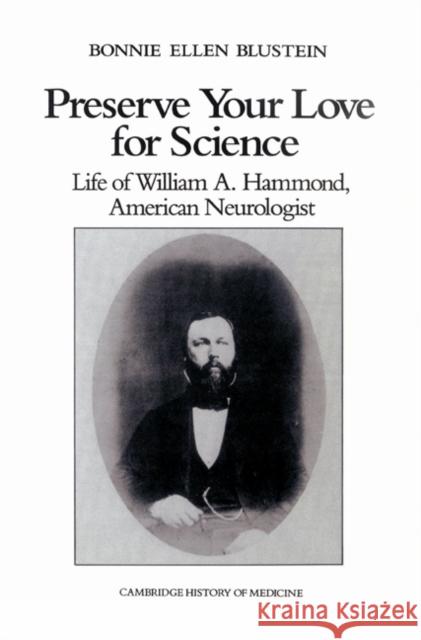Preserve Your Love for Science: Life of William a Hammond, American Neurologist » książka
Preserve Your Love for Science: Life of William a Hammond, American Neurologist
ISBN-13: 9780521528436 / Angielski / Miękka / 2002 / 304 str.
Preserve Your Love for Science: Life of William a Hammond, American Neurologist
ISBN-13: 9780521528436 / Angielski / Miękka / 2002 / 304 str.
(netto: 248,26 VAT: 5%)
Najniższa cena z 30 dni: 206,48
ok. 16-18 dni roboczych
Bez gwarancji dostawy przed świętami
Darmowa dostawa!
In this full-length biography of a major nineteenth century American medical personality, Bonnie Ellen Blustein shows how William A. Hammond, M.D. developed his specialty practice in neurology as a vehicle through which to pursue broad scientific interests within the limits set by the solo-practitioner structure of the medicine of his day. Hammond (1828-1900) was one of the most successful American physicians of the nineteenth century. He was first recognized as a natural history collector and as an original investigator in physiological chemistry, winning international respect for experiments performed as an Army surgeon in Kansas Territory in the 1850s. As the new surgeon general of the United States Army, Hammond took charge in 1862 of the sweeping reorganization of the Medical Department along lines of centralization and efficiency. Hammond then established himself in private practice in New York as an exclusive specialist in neurology, one of the first in the country. Over the next decades, clinical neurology not only made him a rich man, but also proved to be the forum for the most sustained expression of his scientific interests. The scientific study of the nervous system would, Hammond expected, provide the key to psychology and even social problems such as the "woman question." He wrote extensively on such issues in medical journals, in the popular press, and in a series of novels. Hammond's scientific work serves to illuminate the impact of social context on the scientific content of mid-nineteenth century American medicine.











